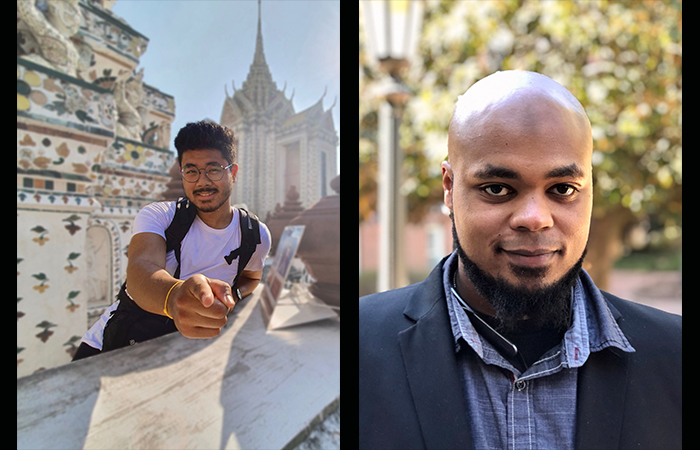Chemistry undergraduate Terawit Kongruengkit and political science alumnus Anthony Lindsay each will receive a Graduate Research Fellowship from the National Science Foundation. They are among just 12 percent of applicants selected nationwide this year for the highly competitive honor.
In addition to these College of Liberal Arts & Sciences students, two William States Lee College of Engineering students, Forest Atcheson and Christopher Neff, are among the 2,000 students selected from more than 16,000 applicants this year.
Kongruengkit, a member of Professor Jordan Poler’s research group in the Department of Chemistry, is expected to complete a bachelor’s degree in chemistry in spring 2021, with a minor in physics. Kongruengkit plans to enter a doctoral program in materials science and engineering in the fall. His fellowship research will focus on magnonic and magnetic materials research. Magnonic devices hold promise in the fields of space exploration, instrumentation, computing devices and others, through wave-based computing.
Lindsay earned a bachelor’s degree in political science with honors in 2018 and conducted research with UNC Charlotte political scientists Beth Whitaker, Cherie Maestas, and James Walsh. Lindsay is pursuing a doctoral degree in political science at UNC-Chapel Hill, where he was awarded the North Carolina Excellence Fellowship. His NSF fellowship will enable construction of a conflict forecasting engine that he anticipates can help predict interstate conflict, domestic conflict and rare events, such as protests, riots, terrorist attacks, and regime shifts.
The NSF Graduate Research Fellowship Program recognizes and supports outstanding graduate students in NSF-supported science, technology, engineering and mathematics disciplines who are pursuing research-based master’s and doctoral degrees at accredited U.S. institutions.
Fellows benefit from a three-year annual stipend of $34,000 along with a $12,000 cost of education allowance, opportunities for international research and professional development and the freedom to conduct their own research at any accredited U.S. institution of graduate education they choose.
Images: Courtesy of Terawit Kongruengkit (left) and Anthony Lindsay (right.)








